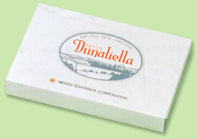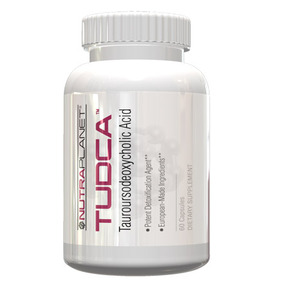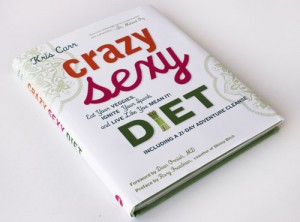After an amazing two and a half weeks in Italy, France and Switzerland, I’m back in Seattle and have resumed my RP healing program full force.
 I kicked it off by firing up my juicer and getting back into my morning routine that starts with a large glass of distilled water, followed by an equally large glass of kale, celery, cucumber and green apple juice. While drinking that, I spend twenty minutes or so doing acupressure and eye exercises while bathing my eyes in a color therapy lamp I acquired while following the Better Eye Health treatment program offered by Dr. Damon Miller. Once done, I enjoy a bowl of oatmeal (the old-fashioned kind) with fresh blueberries. Then I head to my favorite coffee shop to indulge in the one cup of coffee I allow myself daily: a double-shot eight ounce mocha with hemp milk. Already, I feel so much better than I did my entire trip and I’m seeing a little better, too.
I kicked it off by firing up my juicer and getting back into my morning routine that starts with a large glass of distilled water, followed by an equally large glass of kale, celery, cucumber and green apple juice. While drinking that, I spend twenty minutes or so doing acupressure and eye exercises while bathing my eyes in a color therapy lamp I acquired while following the Better Eye Health treatment program offered by Dr. Damon Miller. Once done, I enjoy a bowl of oatmeal (the old-fashioned kind) with fresh blueberries. Then I head to my favorite coffee shop to indulge in the one cup of coffee I allow myself daily: a double-shot eight ounce mocha with hemp milk. Already, I feel so much better than I did my entire trip and I’m seeing a little better, too.
I just ran out of the three-month supply of orange algae I purchased from Israel for a whopping $1,150. I’m glad I tried it but I don’t see a noticeable difference in either my peripheral vision or night vision—which is where it’s really supposed to help. To be fair, the study done in Israel showed that only about 40 percent of the participants responded favorably so I knew the odds were against me going in. But if I had to do it over, I’d do it again because for the people it helps, the results are astounding. For more information on where to order the algae, click here.
 TUDCA is a different matter. My understanding is that its job is to detoxify a person’s liver, which in turn blocks the death of photoreceptor cells—making it more of a prevention tool verses a vision improvement tool. According to Dr. Rosenfarb, who uses it for his patients, TUDCA is slow moving and should be used for at least a year to determine its effectiveness. Now for my food allergy testing through ALCAT. The findings were interesting. The test breaks down a person’s intolerance level to different foods in four categories: Severe intolerance, moderate intolerance, mild intolerance and acceptable foods. The only foods I’m severely allergic to—of all things—are romaine lettuce and saffron. But I had lots of foods in the moderate intolerance category that I’m now staying away from including corn (a tough one), goat milk/cheese and tomatoes. Wheat fell into my mild intolerance category but I’m trying to stay away from it as well because I know that gluten causes inflammation in a big way.
TUDCA is a different matter. My understanding is that its job is to detoxify a person’s liver, which in turn blocks the death of photoreceptor cells—making it more of a prevention tool verses a vision improvement tool. According to Dr. Rosenfarb, who uses it for his patients, TUDCA is slow moving and should be used for at least a year to determine its effectiveness. Now for my food allergy testing through ALCAT. The findings were interesting. The test breaks down a person’s intolerance level to different foods in four categories: Severe intolerance, moderate intolerance, mild intolerance and acceptable foods. The only foods I’m severely allergic to—of all things—are romaine lettuce and saffron. But I had lots of foods in the moderate intolerance category that I’m now staying away from including corn (a tough one), goat milk/cheese and tomatoes. Wheat fell into my mild intolerance category but I’m trying to stay away from it as well because I know that gluten causes inflammation in a big way.
The biggest and most helpful revelation for me involves the herbal remedies that were also included in the allergy screening. Turns out I have SEVERE intolerance to St. John’s Wort, Ginkgo Biloba, and Rooibos. Those of you who have been following this blog for a few months know that when I was in acupuncture treatment with Dr. Yu in Canada in early April, I was dealing with horrible stomach issues the entire time I was there. My stomach issues continued daily for the following month, until I discontinued use of the Chinese herbs he had me taking. I still don’t know what was in the herbs because his formulas are proprietary and he doesn’t disclose them. But I now know to make him or anyone else I’m dealing with understand that I can’t intake any herbs that contain those three ingredients. I also learned something else interesting from the test: that I’m moderately intolerant to Lutein, an eye supplement I’ve been taking for years. I’ve got to do some more research in terms of what this means for me.
 One final note before I log off. I finished Crazy Sexy Diet by Kris Carr on the fight home from Europe. I highly recommend her book to anyone interested in understanding the correlation between diet and degenerative diseases. She breaks it down in a way that makes it easy to comprehend and provides a step-by-step guide for transforming your diet from a acid rich diet that causes inflammation and disease to an anti-inflammation, alkaline-rich diet (think lots of raw vegetables). I wish I had discovered her years ago.
One final note before I log off. I finished Crazy Sexy Diet by Kris Carr on the fight home from Europe. I highly recommend her book to anyone interested in understanding the correlation between diet and degenerative diseases. She breaks it down in a way that makes it easy to comprehend and provides a step-by-step guide for transforming your diet from a acid rich diet that causes inflammation and disease to an anti-inflammation, alkaline-rich diet (think lots of raw vegetables). I wish I had discovered her years ago.


So glad you’re back home and back to your routine! For someone less strong (like me!), I feel like it would be hard to be so disciplined again. Then again, though, you say you’re already feeling better, which of course is a powerful incentive. It was so great to meet up with you in Paris! All the bet to you as always!
Great to get your update, Ingrid! Way to go & welcome back. Watch for the gluten in oatmeal, too.
Thanks for the heads up on that, Jenny. What do you eat for breakfast? I’m trying to replace eggs, which is a tough thing for me to do. Trying to figure out what I ca actually EAT..